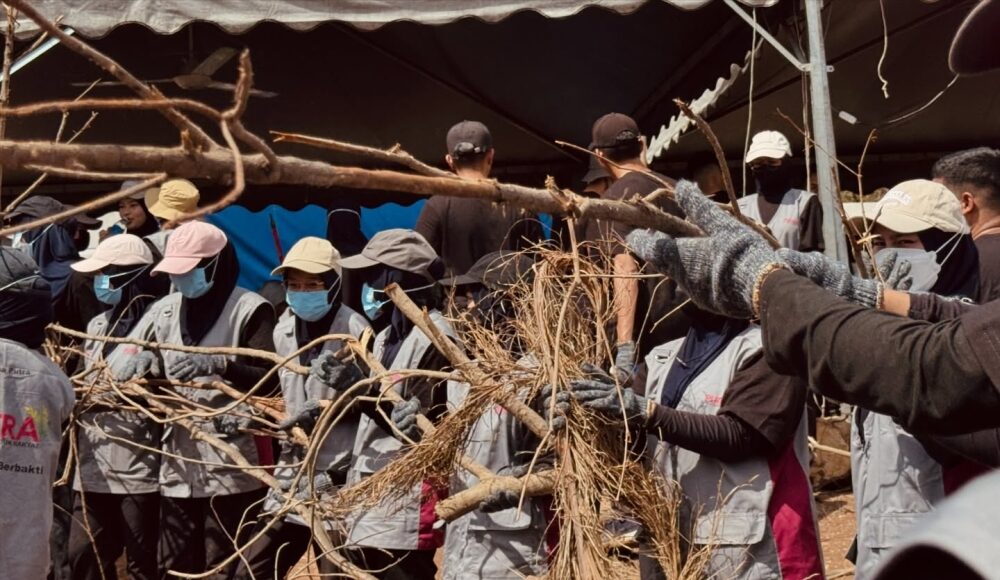MAY 12 — Volunteerism, in Malaysia, is often praised in speeches and government initiatives. It’s seen as a vital part of building communities and empowering youth. But behind the appreciation lies a harder truth: volunteerism is often misunderstood, undervalued, and sometimes misused.
Too often, volunteers — especially young ones — are expected to give their time and skills without proper guidance, recognition, or support.
Their effort is taken for granted, their motivation assumed, and their well-being overlooked. This mindset risks turning a meaningful act of service into unpaid work with little value placed on growth or care.
Volunteers are not just extra hands. They are engaged individuals who choose to help because they believe in a better future.
Whether clearing homes after floods, running donation drives, or teaching children, they offer more than effort — they offer their values, time, and hopes.
Yet, their contributions are often ignored. Tasks are given without purpose. No one asks what they learned, how they coped, or what it meant to them.
Volunteers are seen as replaceable instead of individuals who are learning and growing through service. This must change. Fair treatment in volunteerism doesn’t mean payment — it means respect, structure, and care.
Volunteerism, when planned and supported, helps people grow. They learn leadership, responsibility, teamwork, and how to think through problems.
It’s more than just helping — it shapes how someone sees the world. Malaysia has started to move in this direction.
The MyCorps initiative from the Ministry of Youth and Sports sends young people on local and overseas missions, helping them develop new skills and understanding.
The Yayasan Sukarelawan Siswa (YSS) under the Ministry of Higher Education gives university students the chance to contribute to community efforts in a more structured way.
Apps like MySukarela are starting to make volunteer matching easier. But it’s not enough to have programs. We need them to be active, accessible, and supported by a culture that values them — not just on paper, but in practice.
Volunteerism, when planned and supported, helps people grow. — Picture from Facebook/
A key part of any volunteer journey is the time to reflect on what was done and how it affected the people involved.
Too often, young volunteers face stressful or emotional situations, then go home with no one asking how they feel.
At Team Selangor, every project ends with a compulsory debriefing. This is part of how we take care of our volunteers.
After the recent Putra Heights gas pipeline explosion, our youth worked closely with rescue teams, local authorities, and other organisations.
It was a high-pressure, emotionally demanding environment. After the work was done, we held a proper session for volunteers to talk about what happened.
We asked what went well, what could be done better, and how they were feeling. This step is just as important as the action itself.
It helps young people process what they saw, make sense of it, and continue volunteering with a stronger, clearer mind.
Respecting volunteers means more than a thank-you note. It means giving them proper roles, offering support, and showing that their time matters.
Schools and employers need to recognise volunteer work as something that builds character, skills, and understanding. In countries like Canada and the UK, volunteering is counted in student records and job applications.
We can do the same. A national volunteer portfolio would let young people track their hours, list their contributions, and reflect on what they’ve learned.
This could then be included in scholarship forms, interviews, or university applications. When we treat volunteering as part of a young person’s growth, it stops being an extra task. It becomes a part of who they are becoming.
Some organisations see volunteers as cheap help. Tasks meant for trained staff are handed to young people with little instruction.
These same young volunteers may agree out of eagerness or pressure, not realising that they’re being put in unfair situations.
That’s why we need to be clear about the way we support and protect those who choose to serve. Volunteers must be given defined roles, so they understand what is expected of them and why their work matters.
They must be offered proper training and someone they can turn to for guidance throughout their involvement. Their safety and wellbeing must always be a priority, especially when working in physically or emotionally demanding situations.
Just as important, they should have access to emotional support, particularly after dealing with distressing events or intense collaboration.
And when they are ready, they should be encouraged to take on leadership roles — not just as followers, but as decision-makers in their own right.
These steps are how we respect those who give their time. They help ensure that volunteerism is not taken for granted or used unfairly, but seen as a serious and valued contribution to society.
Volunteering should not be about filling gaps. It should be about building a stronger, kinder country.
When done right, it shapes the person giving their time, just as it helps the people receiving it. Let’s stop treating volunteers as a resource to be used.
Let’s start treating them as citizens building a better Malaysia. Their time, effort, and care matter — and they deserve a system that treats them that way.
* Sadina Suffian is Treasurer of Bersih, and COO of Team Selangor — an outfit under the Menteri Besar’s office focusing on youth empowerment and volunteerism.
** This is the personal opinion of the writer or publication and does not necessarily represent the views of Malay Mail.





